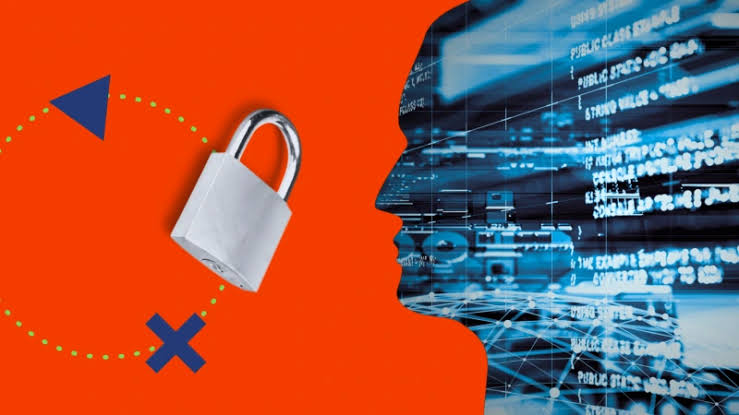Blockchain technology has grown beyond its original use in cryptocurrency and is now considered one of the most reliable solutions for data security. The rise in cyber threats, identity theft, and unauthorized data access has pushed businesses, governments, and individuals to explore stronger security measures. Blockchain, with its decentralized and immutable nature, is proving to be a key tool for enhancing how data is stored, shared, and protected.
Decentralization as a Security Advantage
One of the core strengths of blockchain is its decentralized structure. Unlike traditional databases that rely on central servers, blockchain distributes data across multiple nodes in a network. This decentralization makes it extremely difficult for cybercriminals to compromise the system since there is no single point of failure.
Hackers targeting one node cannot alter the entire chain, ensuring the integrity of the stored information. This structure reduces risks such as ransomware attacks or insider threats that are common in centralized systems.
- No single point of vulnerability
- Data distributed across multiple secure nodes
- Protection against server outages and centralized breaches
Immutability of Stored Data
Another vital security feature of blockchain is the immutability of data once it is recorded. Each transaction or entry is secured using cryptographic hashing and linked to the previous block, creating a chain of verified information.
Once data is added, it cannot be altered or deleted without consensus from the entire network. This ensures that sensitive records such as medical information, financial transactions, and legal documents remain tamper-proof and trustworthy.
- Permanent records of transactions
- Tamper-resistant data storage
- Increased accountability for all users
Strong Cryptographic Protection
Blockchain employs advanced cryptography to secure information. Every block in the chain is encrypted, making it highly resistant to unauthorized access. Public and private keys are used for identity verification, ensuring that only authorized users can access or alter the data.
This cryptographic approach strengthens authentication and reduces the risk of identity theft or data manipulation. It is especially useful in industries where sensitive personal or financial information is frequently exchanged.
- Encryption for data protection
- Public and private keys for secure authentication
- Reduced risk of data interception
Transparency and Traceability
Blockchain provides transparency by allowing all authorized participants in the network to view the same version of data. At the same time, sensitive details can remain private through encryption. This combination of transparency and confidentiality ensures both accountability and security.
Traceability is another benefit. Every action on the blockchain leaves a verifiable trail, making it easier to detect fraud, identify suspicious activities, and ensure regulatory compliance. This is particularly beneficial in sectors like supply chain management, banking, and government services.
- Shared access for authorized users
- Encrypted confidentiality of sensitive details
- Complete traceability of every transaction
Protection Against Fraud and Identity Theft
Fraud and identity theft are among the biggest cybersecurity threats today. Blockchain addresses these risks by securing digital identities through cryptographic verification. Personal identifiers can be stored securely and verified without being exposed to unauthorized parties.
In digital payments and e-commerce, blockchain ensures that transactions are validated and recorded transparently, reducing opportunities for fraudulent activities. Businesses and individuals gain more confidence knowing that their data and transactions are protected.
- Secure digital identity management
- Fraud detection through verified records
- Safe and reliable online transactions
Supporting Smart Contracts for Security
Smart contracts are self-executing agreements built on blockchain technology. They automatically enforce rules and conditions without needing third-party intervention. By eliminating intermediaries, smart contracts reduce the chances of human error, manipulation, or corruption.
They are particularly effective in legal, financial, and business transactions where compliance and trust are crucial. Smart contracts ensure data security by guaranteeing that processes happen exactly as programmed.
- Automated contract enforcement
- Reduced human interference and manipulation
- Secure legal and financial transactions
Enhancing Security in Key Industries
Blockchain is already being adopted in different industries to enhance security:
- Healthcare: Securing patient records and ensuring privacy while enabling authorized data sharing
- Finance: Protecting transactions, reducing fraud, and improving transparency in banking systems
- Supply Chain: Tracking goods and preventing counterfeit products with verified data
- Government: Safeguarding voting systems, identity management, and public record security
These applications highlight how blockchain goes beyond theory to provide practical solutions for data protection.
Future Potential of Blockchain in Data Security
As cyber threats grow more sophisticated, blockchain’s potential in enhancing data security will expand. Future developments could include integration with artificial intelligence for automated fraud detection, wider adoption of decentralized identity systems, and stronger regulations that push businesses to adopt blockchain-based solutions.
The scalability of blockchain systems will also improve, making them more efficient and accessible for organizations of all sizes. This will further strengthen global data security standards.
Conclusion
Blockchain technology is reshaping the way data security is approached. Through decentralization, immutability, cryptographic protection, and transparency, it provides strong defenses against modern cyber threats. Industries ranging from healthcare to finance are already reaping the benefits of blockchain’s ability to safeguard information.
As the technology matures, blockchain will continue to play a vital role in protecting sensitive data, preventing fraud, and ensuring digital trust in a world that increasingly relies on secure information systems.



